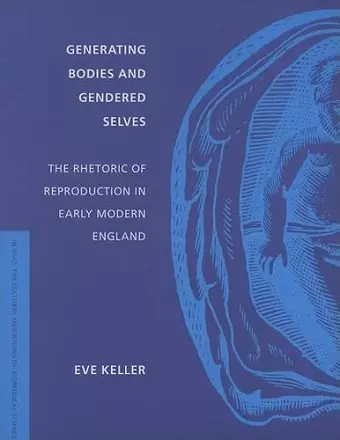Generating Bodies and Gendered Selves
The Rhetoric of Reproduction in Early Modern England
Format:Paperback
Publisher:University of Washington Press
Published:3rd Jan '07
Currently unavailable, and unfortunately no date known when it will be back

Examines the textured interrelations between medical writing concerning generation and childbirth and emerging notions of selfhood in 17th-century England
Examines the textured interrelations between medical writing about generation and childbirth - what we now call reproduction - and emerging notions of selfhood in early modern England. This book looks at the particular assumptions about bodies and selves that medical language inevitably enfolds.
Generating Bodies and Gendered Selves examines the textured interrelations between medical writing about generation and childbirth - what we now call reproduction - and emerging notions of selfhood in early modern England. At a time when medical texts first appeared in English in large numbers and the first signs of modern medicine were emerging both in theory and in practice, medical discourse of the body was richly interwoven with cultural concerns.
Through close readings of a wide range of English-language medical texts from the mid-sixteenth to the early eighteenth centuries, from learned anatomies and works of observational embryology to popular books of physic and commercial midwifery manuals, Keller looks at the particular assumptions about bodies and selves that medical language inevitably enfolds. When wombs are described as "free" but nonetheless "bridled" to the bone; when sperm, first seen in the seventeenth century by the aid of the microscope, are imagined as minute "adventurers" seeking a safe spot to be "nursed": and when for the first time embryos are described as "freeborn," fully "independent" from the females who bear them, the rhetorical formulations of generating bodies seem clearly to implicate ideas about the gendered self.
Keller shows how, in an age marked by social, intellectual, and political upheaval, early modern English medicine inscribes in the flesh and functioning of its generating bodies the manifold questions about gender, politics, and philosophy that together give rise to the modern Western liberal self - a historically constrained (and, Keller argues, a historically aberrant) notion of the self as individuated and autonomous, fully rational and thoroughly male.
An engagingly written and interdisciplinary work that forges a critical nexus among medical history, cultural studies, and literary analysis, Generating Bodies and Gendered Selves will interest scholars in early modern literary studies, feminist and cultural studies of the body and subjectivity, and the history of women's healthcare and reproductive rights.
"Keller's finely detailed investigation . . . . is a brilliant example of how early modern history can benefit from a thorough and sustained engagement with the best scholarship in the fields of cultural theory and science studies."
(Medical History)"The scholarship is exemplary and exact, so this is a useful contribution to the history of literature and philosophy and the history of midwifery and medicine. Here is a sound topic honestly handled."
(Bibliotheque d'Humanisme et Renaissance)"Generating Bodies and Gendered Selves compellingly shows how medical writing took part in formulating emergent ideas about the self during the early modern period. Both in its larger thesis and in its readings of individual texts, Keller's book is a welcome addition to the study of early modern conceptions of medical knowledge, gender, and subjectivity."
(Early Modern Literary Studies)"Keller's book offers a compelling series of close readings of selected texts, undertaking detailed analyses of their language to reveal implicit ways of thinking in early modern England. . . . Generating Bodies and Gendered Selves will thus be of most interest to literary scholars concerned with the emergence of the modern subject in written texts, but it should also appeal to historians of medicine as a companion to the historical accounts."
(IISBN: 9780295986418
Dimensions: unknown
Weight: 426g
232 pages